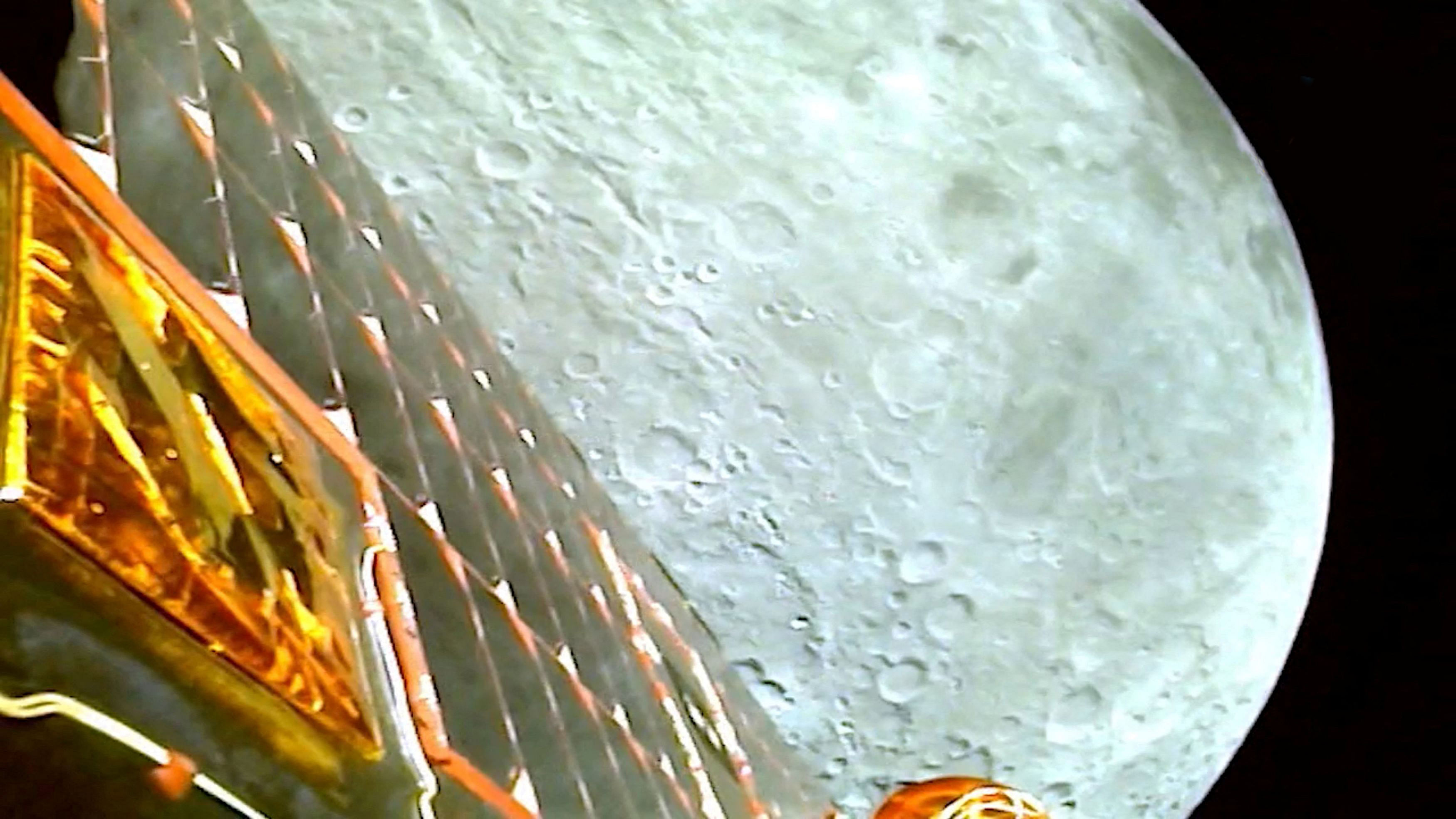
A view of the moon as viewed by the Chandrayaan-3 lander during Lunar Orbit Insertion on August 5, 2023 in this screengrab from a video released August 6, 2023.
Credit: Reuters Photo
India will attempt to make history on Wednesday when the lander module of Chandrayaan-3 spacecraft descends on the moon’s unexplored south polar region in the 19th such attempt in the six-decade-plus history of human exploration of the earth’s only satellite.
The Indian Space Research Organisation said on Tuesday that the lander was on schedule for the 6.04 pm touchdown.
“The mission is on schedule. Systems are undergoing regular checks. Smooth sailing is continuing. The Mission Operations Complex (MOX) is buzzed with energy and excitement!” Isro said.
On Wednesday, the powered descent will see the lander module navigate a distance of 745.5 km in about 19 minutes.
Through four distinct phases (rough braking, attitude hold, fine braking and terminal descent), the Vikram lander will change its orientation – from horizontal to vertical – before it makes the touchdown attempt.
Isro chairman S Somanath had stated that the probe will land on the lunar surface even if nothing worked.
“If everything fails, if all the sensors fail, nothing works, still it (Vikram) will make a landing. That’s how it has been designed,” he said earlier this month.
The spacecraft is expected to commence its descent at a horizontal velocity of 1,680 m/sec, but its speed will be slowed down gradually to have a vertical velocity of about 2 m/sec before landing.
“A successful demonstration of the soft-landing capability will pave the way for future missions. We are keeping our fingers crossed,” astrophysicist Yashwant Gupta, director, National Centre for Radio Astronomy, Pune, told DH.
While there have been 18 successful soft landings on the lunar surface since 1962 – including six crewed Apollo missions of the USA – Chandrayaan-3 will be the first one to reach an area near south pole – a deep shadow area where water is suspected to be present in abundance in “frozen and trapped” format.
The mission is on schedule. Smooth sailing is continuing. The Mission Operations Complex is buzzed with energy and excitement.ISRO
A success would put India into a small club of nations along with USA, Russia and China that dropped manned and unmanned space probes on lunar surface. Attempts by others like Japan, South Korea and Israel have remained unsuccessful.
The lander will carry four payloads for measuring surface plasma, thermal properties and seismic activity near landing site. The two payloads on board Praggyan rover will conduct experiments to explore elemental and chemical composition of lunar surface.
“The experiments are to be conducted for one lunar day, which is equivalent to 14 earth days. If it generates some basic data, that would set up the paths for follow-up missions,” said Gupta.
The propulsion module – separated from the lander module on August 17 – now circles the moon with a unique payload designed to find out the signatures of exoplanets with potential for habitability.
In a 40-second video, Isro also released visuals of moon as captured by Lander Imager Camera 4. The images identified lunar craters Goddard, Ibn Yunus, Jansky, Hirayama and Brunner, and two lunar maria – Mare Marginis and Mare Smythii.
Deccan Herald is on WhatsApp Channels | Join now for Breaking News & Editor's Picks
